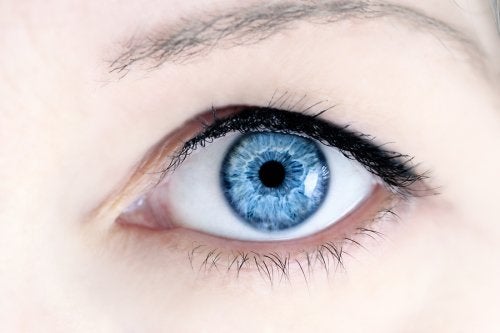-
Preserving Your Eyesight as You Age
September is Healthy Aging Month, and people of all ages and walks of life are invited to participate. After all, good health in your golden years starts with a commitment to preventive wellness earlier in life. And if you’re already eligible for an AARP card, it’s never too late to get serious about your wellness. As you celebrate each passing year, you should pay attention to the changing needs of your eye health. In Chicago, eye doctors encourage patients to schedule regular exams, even if they don’t wear eyeglasses or contact lenses.

Schedule an eye exam.
Your ophthalmologist will let you know how often you should schedule an eye exam. If you’re 65 or older, you’ll probably need one every year or two. A comprehensive eye exam is an opportunity for the doctor to check for potential red flags of eye disease. With early treatment, it’s possible to delay the progression of eye diseases. It isn’t always easy to remember to schedule an appointment that only happens every year or two. Solve this problem by making your next appointment before you leave the optician’s office, and check that the office will send you a reminder card or email.
Wear sunglasses.
Sunglasses are much more than just a fashion statement. They can protect your eyes from the harmful ultraviolet (UV) rays. UV light increases the risk of cancer, cataracts, and growths on the eye. Look for sunglasses that offer broad-spectrum UV protection, and wear them each time you go outdoors. If you wear prescription eyeglasses, you can visit an optical center to order prescription sunglasses. Wearing a wide-brimmed hat can also help shield your eyes.
Quit smoking and avoid secondhand smoke.
There are dozens upon dozens of compelling reasons to quit smoking, including its detrimental effects on eye health. Smokers are more likely to be diagnosed with macular degeneration, cataracts, and dry eyes. They’re also at a higher risk of cardiovascular diseases, which can indirectly worsen eye health. It’s never too late in life to quit smoking. Consider it an investment in your future, just like saving for retirement. If you don’t smoke, don’t start. Avoid being near anyone who is smoking, as secondhand smoking is also harmful.
-
Exploring Your Glaucoma Treatment Options
An optic nerve transmits impulses from each eye to the brain. This allows the information that enters the retinas to be interpreted by the brain. The optic nerve is essential for your clear, healthy vision , and if this nerve sustains damage, blindness can result. Glaucoma refers to a group of eye problems that involve damage to this crucial nerve. If you’ve been visiting an ophthalmologist in Chicago for regular eye exams, then you’re more likely to be diagnosed with glaucoma early on. Your eye doctor can get you started on treatments to delay the progression of vision loss.

Medicated Eye Drops
Most people diagnosed with glaucoma start their treatment with prescription eye drops. There are different classes of medicines that can treat glaucoma, including the following:
- Beta blockers
- Prostaglandins
- Alpha-adrenergic agonists
- Carbonic anhydrase inhibitors
- Miotic or cholinergic agents
These eye drops regulate the pressure within your eye, which is called the intraocular pressure. By preventing the intraocular pressure from rising too high, the eye drops can delay or halt further damage to the optic nerve.
Oral Medications
Sometimes, eye drops by themselves aren’t sufficient to get the intraocular pressure down to ideal levels. The ophthalmologist might prescribe an oral medication to take in addition to your eye drops. Before taking any new medication, make sure your eye doctor has current information regarding your other prescriptions and medical conditions.
Laser Treatment
Another treatment option for glaucoma is laser surgery. If you have open-angle glaucoma, your doctor may perform a trabeculoplasty. He or she will use a special laser to improve the drainage of the intraocular fluid to reduce the pressure. Another laser surgery is an iridotomy, which is appropriate for patients with angle-closure glaucoma. This treatment also improves the drainage of intraocular fluid.
Eye Surgery
An ophthalmologist may recommend surgery performed without the use of lasers. One option is the implantation of a very tiny drainage tube. The surgeon will also create a reservoir underneath a thin membrane called the conjunctiva. The tiny tube sends intraocular fluid to the reservoir, and from there, the fluid absorbs harmlessly into the blood vessels.
-
The Truth About Glaucoma Symptoms
Some eye conditions are obvious, but others require the help of an eye doctor in Chicago to diagnose. Even those who practice excellent eye care may run into certain eye health issues, so it’s wise to maintain a working relationship with your ophthalmologist. Glaucoma is one eye condition that can compromise your vision and ultimately change your quality of life. You might not notice signs of the disorder on your own, but your professional will be able to detect its presence. Read on for the real truth about glaucoma symptoms.
Glaucoma symptoms are tricky because they don’t always exist. In fact, many people with glaucoma don’t experience any symptoms at all until the disease progresses. Those who do notice symptoms of this condition may experience blurred or distorted vision. As the disease progresses, you might experience vision loss as well. Angle-closure glaucoma is a rare kind that may cause nausea and eye pain. Since there is no cure for glaucoma and you might not actually experience symptoms, it’s extra important that you visit your eye doctor for screenings. Your ophthalmologist can check for signs of glaucoma, and he or she can devise a treatment plan if you appear to have the disease.
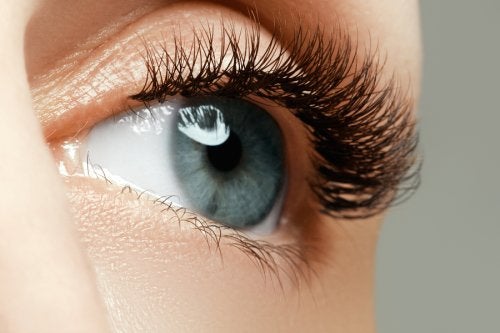
-
Preserving Your Eyesight After Being Diagnosed with Glaucoma
While eye care is important at all stages of life, it becomes even more critical after being diagnosed with glaucoma. If your eye doctor in Chicago has informed you that you have this condition, then continue reading to learn how to help preserve your eyesight.
Glaucoma is typically a result of pressure that builds up in the eye and causes damage to the optic nerve, which is responsible for transmitting information to the brain. As the optic nerve deteriorates, so does vision. For this reason, glaucoma can lead to blindness in just a few years if not treated by an eye doctor.
Diagnosing glaucoma early and being treated by an ophthalmologist are key to preserving your eyesight when you have this condition. For this reason, it’s important to see your eye doctor regularly for checkups and to adhere to your treatment plan. Some of the treatment options for glaucoma include microsurgery, laser surgery, and medicated eye drops.
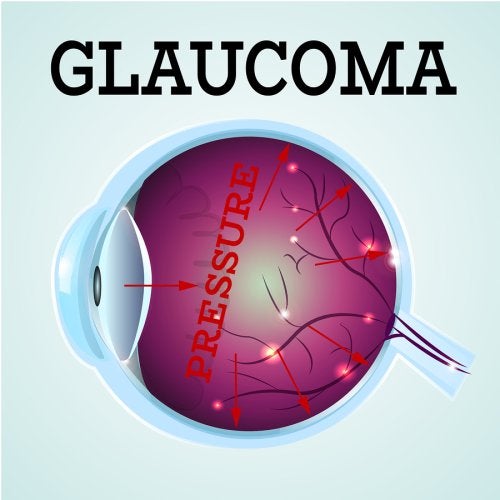
-
What Patients Should Know About Intraocular Lenses
Myopia is a common vision problem. If you’re nearsighted and want a solution other than eyeglasses or contact lenses, then your eye doctor may recommend treatment with intraocular lenses (IOLs). If you’re interested in intraocular implants in Chicago , then continue reading to learn more about this option for vision correction.
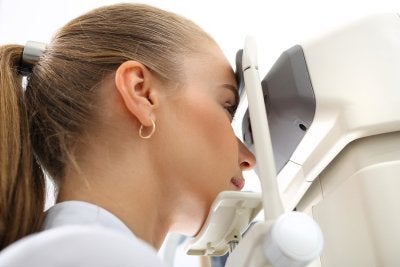
Intraocular lenses offer a solution for myopia.
Many people wear contacts or glasses daily in order to see properly. Myopia, or nearsightedness, is the most common type of refractive error, and its prevalence continues to grow. If you suffer from myopia, then this means that you have difficulty seeing objects that are at a distance. Some other symptoms of myopia include eye strain, headaches, and squinting. If you’re nearsighted and are tired of wearing glasses or contacts to see clearly, then intraocular lenses could be right for you.
Intraocular lenses are like permanent contacts.
An intraocular lens is a lot like a contact lens, except that it is surgically implanted in the eye. This means that instead of sitting on the surface of the eye, it is placed in the eye where it can provide you with clearer vision 24 hours a day. An IOL is implanted in front of the eye’s natural lens to work with it and correct your blurry vision. Intraocular lenses require just one surgical procedure and do not need to be removed.
Intraocular lenses offer many benefits.
As an individual with impaired vision, IOLs have a lot to offer you. Intraocular lenses provide stable and predictable results when it comes to giving patients excellent quality of vision. Also, the IOL procedure is relatively simple surgery, allowing your eye doctor to insert the implant through a microincision. IOLs require no maintenance, are invisible, and can be removed later, if necessary. Finally, intraocular lenses are a versatile solution, providing vision correction for a broad range of eye problems and offering an alternative treatment for individuals who are not candidates for LASIK.
-
Understanding Glaucoma
Sometimes referred to as a silent thief of sight, glaucoma is a serious eye condition that can affect your vision and even lead to blindness. If you’re wondering what impact this disease might have on your eye care near Chicago, then watch this video to learn more about glaucoma.
In the United States and worldwide, glaucoma is a leading cause of blindness, occurring when fluid buildup in the eyes causes compressive damage to the optic nerves. This condition is sometimes called a thief of sight because patients typically experience no symptoms until they have already lost a significant amount of their vision. For this reason, eye care professionals recommend that people regularly visit their ophthalmologist or eye doctor for checkups.
-
How Do IOLs Work?
If you are considering cataract surgery, then your ophthalmologist may recommend that you consider eye surgery in Chicago to get intraocular implants . Watch this video to learn about how this type of vision correction works.
Sometimes referred to as an intraocular lens or IOL, an intraocular implant works like your eye’s natural lens by focusing the light that penetrates the cornea and pupil to help you see. The IOL focuses light onto your retina at the back of the eye, and the retina then transforms the light into signals that travel through the optic nerve to the brain, where they are rendered into the images that you see. In this way, IOLs can improve a range of vision problems.
-
Tips for Avoiding Household Eye Injuries
When it comes to practicing good eye care in Chicago , this means more than just visiting your optical center for regular exams with you eye doctor. Caring for your eyes involves taking certain precautions when necessary to help protect your vision, and this includes when you are at home. There are several things that you can do to help avoid household eye injuries.
If you ever use hazardous chemicals or products around the house, then eye doctors recommend that you protect your eyes from injury by wearing protective eye gear. Also, if you ever work with power or hand tools, bungee cords and loads, lawn mowers, or hedge trimmers, then these are all situations in which you should be cautious about fragments injuring your eyes and in which you can benefit from using protective eyewear. Finally, take care in the kitchen while preparing anything with oil or hot liquids to prevent them from splattering and causing eye injuries.
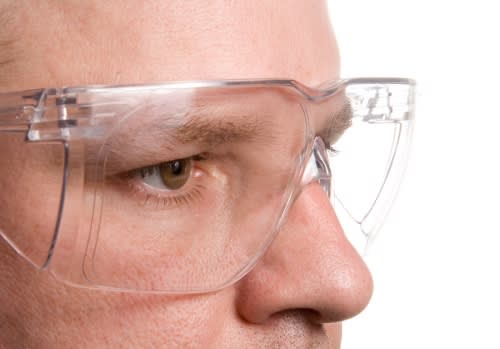
-
Are You at Risk for Glaucoma?
Glaucoma is a common cause of irreversible vision loss. This group of eye diseases, which inflict damage on the optic nerve, does not result in symptoms in the early stages. This is one reason why an ophthalmologist in Chicago may speak with you about your risk factors. If you are at a high risk of glaucoma, your ophthalmologist can explain the screening tests that are available at the optical center. One major risk factor is your family history. Having a parent or sibling who has been diagnosed with glaucoma can increase your own risk substantially. Be sure to update your personal and family health history each time you visit the eye doctor.
Another significant risk factor of glaucoma is your age. Your risk increases with each birthday, particularly when you reach your 40s and beyond. Individuals with severe nearsightedness are also at an increased risk of glaucoma, as are those who are of African, Hispanic, or Asian heritage. Patients with type 2 diabetes may already know of their risk of diabetic retinopathy, but they’re also at an increased risk of glaucoma, especially if they’ve had diabetes for a long time.
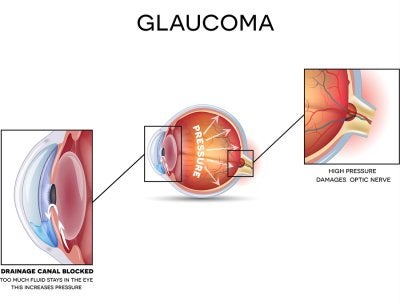
-
Are You a Good Candidate for Intraocular Contact Lenses?
Are you tired of having to wear glasses or contacts to see well? If so, then you may be interested in treatment with intraocular implant lenses, or IOL. These lenses work similarly to contact lenses, but they are implanted into your eyes, offering you a more permanent form of vision correction. When determining your candidacy for IOL, there are several factors that your ophthalmologist near Chicago will consider.
Whether or not your eye doctor will recommend intraocular lenses can depend on your level of visual acuity. IOLs are considered ideal for individuals who have severe myopia, or nearsightedness, and are often advised for patients whose high level of myopia makes LASIK a poor choice. If you have nearsightedness greater than -10 or -11 diopters, then you could be a candidate for IOLs. If you’re interested in learning more about whether this procedure is right for you, then schedule an appointment with your eye doctor for an intraocular lens consultation.
